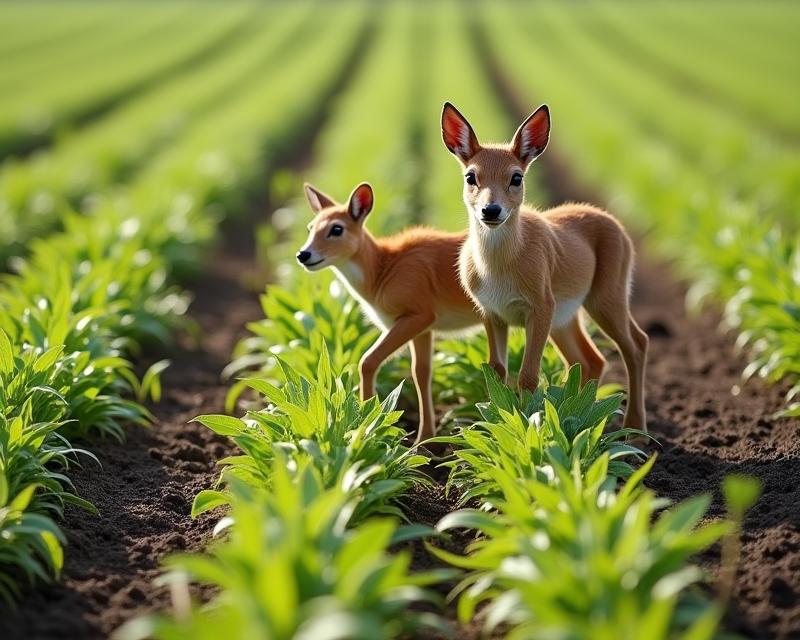Cover Crops: Boosting Farm Diversity
Publish in Sustainable Farming el 01/07/2025 02:57
Cover Crops: Boosting Farm Diversity
Hey Farmers! Thinking about shaking things up in your field? One fantastic way to do that is by incorporating cover crops into your farming rotation. For generations, many farms have relied on the same crops year after year. While familiar, this can lead to soil depletion and increased pest/disease problems. Cover crops offer a powerful solution by adding diversity and a whole host of benefits to your farm system.

What are Cover Crops?
Simply put, cover crops are plants grown not for harvest, but to protect and improve the soil. They act like a living blanket, shielding the soil from erosion, suppressing weeds, and even improving soil health. Think of them as beneficial partners in your farming operation, working quietly behind the scenes to make everything better. Common examples include rye, oats, clover, and vetch – each offering slightly different advantages.
The Benefits are Abundant!
So, why should you consider adding cover crops to your farm? The benefits are numerous! Firstly, they dramatically reduce soil erosion, especially during heavy rains or windy conditions. This is crucial for preserving valuable topsoil. Secondly, cover crops improve soil structure, making it easier for water and air to penetrate. This leads to better root growth for your main crops. They also fix nitrogen in the soil (especially legumes like clover and vetch), reducing your reliance on synthetic fertilizers. Furthermore, they suppress weeds, reducing the need for herbicides. And finally, they increase organic matter in the soil, which is essential for long-term soil health and fertility. It’s a win-win-win!
Challenges to Consider
While the benefits are clear, there are some challenges to consider. One is the initial cost of seeding the cover crop. You'll need to factor in the cost of seeds and planting equipment. Another challenge is timing – you need to get the cover crop planted at the right time to maximize its benefits. It also requires careful planning to ensure the cover crop doesn't compete with your main crops for resources when it's time to terminate it. Finally, some cover crops can be difficult to manage, requiring specific termination methods (like mowing or herbicides) to prevent them from becoming weeds themselves. Researching the best cover crop for your specific climate and soil type is key to overcoming these challenges.
Getting Started
Starting with a small area to experiment is a great way to learn the ropes. Talk to your local agricultural extension office – they can provide valuable advice on cover crop selection and management for your region. Don't be afraid to try different combinations of cover crops to see what works best for your farm. Incorporating cover crops is an investment in the long-term health and productivity of your land – and it’s a step towards a more sustainable and resilient farming future!





